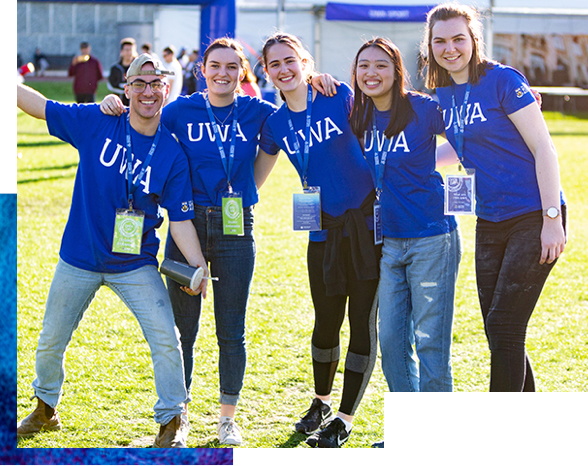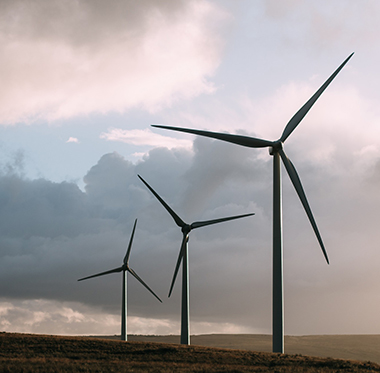Postgraduate
Master of Renewable and Future Energy
Contact us
Address
Student Central
The University of Western Australia (M355), 35 Stirling Highway, Perth, Western Australia 6009
Telephone
131 UWA (131 892)
International
(+61 8) 6488 1000
Hours
Frequently asked questions
Events you may be interested in
Show more eventsCareers and further study
Explore the career opportunities available to you.
Career Pathways
The Master of Renewable and Future Energy is designed to upskill engineering graduates for employment in the rapidly expanding renewable energy sector in Australia and internationally.
Whether you are a professional already employed in the energy sector and looking to upskill, or whether you are an engineer looking to gain employment in the renewable energy industry, the career opportunities are varied as industries move towards a more sustainable energy future.
Industries include:
- Mining, Energy and Gas
- Government
- Academia
Roles may include:
- Renewable Energy Engineer
- Energy Consultant
- Government Science Advisor
- Environmental Sustainable Design Consultant
Further Study
Fees and scholarships
Learn more about the fees that apply to you for this course.
Domestic Student Fees
For Commonwealth-supported places, student contribution amounts are charged by unit, based on area of study. For a fee estimate, go to the Fee Calculator and select “I want to price my units”. Fees are subject to annual indexation. Refer to the Handbook to identify the units required. More information on how fees are calculated.
Domestic Student Fees for Full-Fee Paying Places
If you're not eligible for a Commonwealth-supported places, you will be charged a for Full-Fee Paying place. For Full-Fee Paying places, students are charged an annual course fee, charged per credit point at a rate dependent on the course in which the student is enrolled. Annual course fees are calculated based on an annual study load.
Check the handbook to confirm the annual study load for your course. Visit the Fee Calculator and select your course type to find out more. Fees are subject to annual indexation. More information on how fees are calculated.
Scholarships
Scholarships are available to students from a diverse range of backgrounds, including academic achievement, financial need, educational disadvantage, leadership and community service, artistic or sporting achievements, and being from a rural or remote area.
Cost of living
International Student Fees
Onshore international students are charged an annual course fee, charged per credit point at a rate dependent on the course in which the student is enrolled. Annual course fees are calculated based on an annual study load. Check the handbook to confirm the annual study load for your course.
Find out more about international student tuition fees and visit the fee calculator for the relevant course fees.
Fees are subject to annual indexation.
Scholarships
Scholarships are available to students from a diverse range of backgrounds, including academic achievement, financial need, educational disadvantage, leadership and community service, artistic or sporting achievements, and being from a rural or remote area.
Cost of living
Admission requirements
If you’re interested in furthering your career by studying this postgraduate course, find out the admission details below
Admission Requirements
(a) a UWA Master of Professional Engineering or a Bachelor of Engineering, or an equivalent qualification, as recognised by UWA;
and
(b) the equivalent of a UWA weighted average mark of at least 50 per cent;
and
(c) successfully completed prior tertiary study in electrical and electronic engineering, chemical engineering, or mechanical engineering, or in a related cognate discipline as recognised by UWA.
Ranking and Selection Process
English competency
English is the language of instruction and assessment at UWA and you will need to meet the English language requirements of the University to be eligible for a place.
Minimum overall IELTS score of 6.5, with no band less than 6.0.
How to apply

Ready for the next step?
Find out how to apply through our simple online application process.
We'll guide you through our entry requirements, admission pathways available to you and application deadlines for your chosen course.
We can’t wait for you to join us!
Course details
About the course
Why study this course?
- The MRFE is in sync with the rapidly expanding renewable energy industry in Australia and around the world, and covers the transition to renewables, microgrid and smart-grid technology, as well as chemical renewable and storage.
- With UWA’s research expertise in both traditional and renewable energy this course takes advantage of the growing trend of renewables in remote and small communities of Western Australia (WA), leveraging strong connections with local industry partners working in the energy sector.
- Industry Connections. A key feature of this course is its strong engagement with industry and the potential to undertake industry based work. This is primarily through the course's Industry Advisory Panel, which is made up of energy sector specialists from a wide range of organisations. MRFE students will also have access to a vast range of opportunities to network with industry, develop professional skills and connect with a dynamic cohort of students from around the world.
Quick details
- Available
- Perth (Crawley campus)
- Full-time
- Part-time
- On-campus
- Semester 1, Semester 2
- Postgraduate
- 62560
- 0100266
Who's this course for?
Course structure
Postgraduate coursework degrees and combined (coursework and research) degrees comprise a number of units. Refer to the course structure for more information.
You'll learn to
- Gain a deep practical understanding of specialised topics in renewable energy sources and generation; energy storage systems; energy transmission and distribution, including smart grids and microgrids; and the main drivers and policies that impact the adoption of clean energy.
- Demonstrate a technical and economic understanding of renewable energy resource assessment and determine how different renewable technologies fit into the current and future energy market.
- Articulate the research and technology pathways for current and future energy provision.
- Undertake engineering system design of renewable energy generation, distribution and storage for various operation modes.
- Identify and evaluate emerging technologies in renewable energy generation, integration, distribution and storage.
- Execute engineering design tasks in multidisciplinary teams to industry standards.



